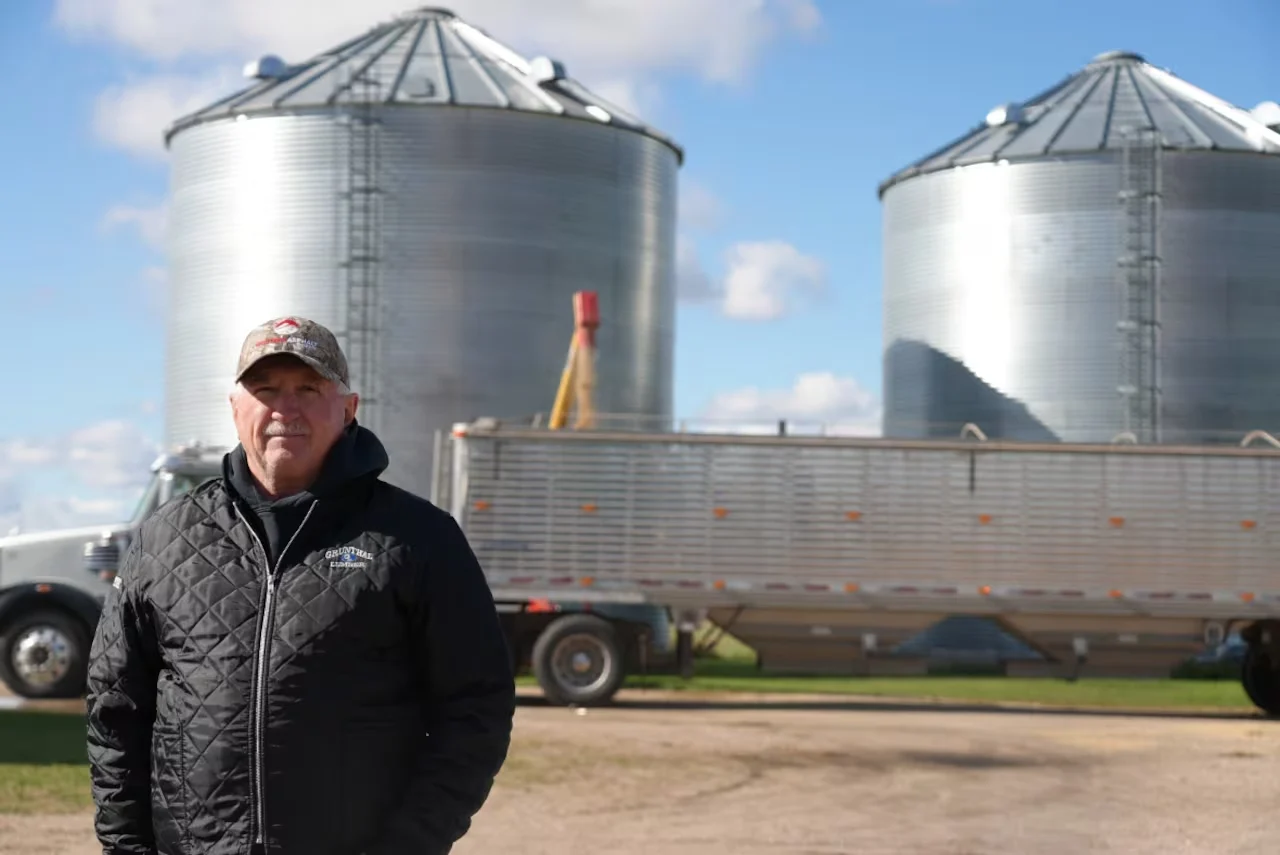
Manitoba farmers hope frost will firm up fields after rain, hail pummel crops
It was a race against the quickly approaching thunderstorm, and farmer Landon Wieler didn't quite make it.
"I was standing outside when the hail started, so I was kind of like yeah, I should probably get into a vehicle and get out of here now," said Wieler, who had to abandon his soybean harvest.
SEE ALSO: Ready? Seven provinces may see snow before Thanksgiving
RM of Piney Deputy Reeve David Beaudry's rain gauge measured over 70 millimetres of rain along with the hail that fell Saturday night into Sunday morning at his home near South Junction, about 150 kilometres southeast of Winnipeg.
Beaudry said he could tell the very concentrated storm was going to hit his corner of the province hard.
"There was a lot of rumbling. It was like a growling noise," said Beaudry. "We could tell it was pretty bad."

Hail the size of loonies fell at Jackie Klassen's house near South Junction Oct. 4. (Submitted by Jackie Klassen)
Now Wieler is hoping frost will soon make the ground solid enough for him to get back on the field he leases near Sprague, 160 kilometres southeast of Winnipeg, to get the last acres left and fix the ruts left from sinking combines.
"A frost will hold us above the ground and it will keep everything solid," said Wieler.
He said Manitoba's far southeast was also hit last year by too much moisture. Wieler has more farmland in the Niverville area, 35 kilometres south of Winnipeg.
"Everything in Niverville was good. But everything out here was a crop insurance claim," he said.
Wieler added it was looking like a relatively good harvest until Saturday night, with an early start in the spring and only minor drought damage.
Then the rain came.
"Trying to clean everything up and get off the field is a bit of a task when it rains that fast," said Wieler.

RM of Piney deputy reeve David Beaudry in front of a truck being loaded with some of the soybeans farmer Landon Wieler was able to get off the Sprague-area field before a major thunderstorm. (Chris Gareau/CBC)
The extreme difference in precipitation amounts close together was obvious, with dry ditches just a few kilometres east and north of South Junction and neighbouring Sprague, where Environment Canada measured 61.7 millimetres of rain.
That amount of rain in just a few hours on the weekend is nearly triple the 21.5 millimetres Sprague received in May, when wildfires were the concern in the area.
Thumbnail courtesy of Chris Gareau/CBC.
The story was originally written by Christopher Gareau and published for CBC News.